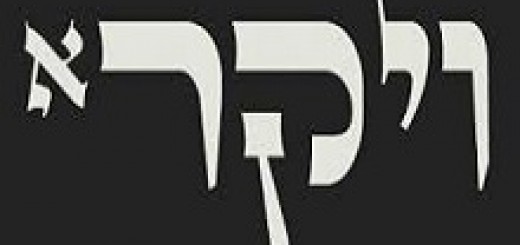By Avner Friedmann
The Parshah states[1], “When the Most High bequeathed the nations, when He separated the children of man, He fixed the boundaries of the nations according to the number of the children of Israel. For HaShem’s portion is His people; Yaakov is the rope of His inheritance.” HaShem chose Israel to be His nation and His portion[2], as it is written[3]: “For G-d selected Yaakov as His own, Israel as His treasure”. He singled out the Jewish people from all nations and called them[4] “A unique nation upon earth”, and designated them to be the bearers of His mission for humanity.
The Ramban (Rabbi Moshe ben Nachman) writes[5] that the Creator gave each of the original seventy nations a portion on earth, along with their own star and a mazal; and over each of them He assigned a ministering angel. On the other hand, he gave the holy land of Israel to the Jewish people and chose to have a close personal relationship with them. In other words, He governs the Jewish people directly, through constant personal supervision, rather than through the agency of an angel or constellation, as written “You will be a people for Me and I will be a G-d for You”[6].
The Holy Zohar[7] states that HaShem’s love for Israel is eternal and unconditional. He chose us not because we merited it, but only through His goodwill (“You shall be for Me the most beloved treasure of all people, for Mine is the entire world” [8]). HaShem is like a father who pays constant attention to his beloved children; because they literally are part of His very essence. He even takes their trials and tribulations personally, as it states[9], “In all their troubles He is troubled”.
In order to maintain an eternal and inseparable bond with Israel, the G-dly souls of the Jewish people are like a “rope”. On one end our souls are attached to HaShem above, and on the other end our souls are attached to our physical bodies below.[10] The Talmud[11] compares this to a king who possessed a single key to all his treasure houses. He said to himself, “This key is too important. Without a chain, I may lose it”. He tied a long chain to it and bound it to himself at all times.
At its source, this “Rope” of HaShem’s inheritance is made up of six hundred thousand strands, the number of the original root souls of Israel. They are all bound together as one sturdy rope[12]. This rope chains down through countless spiritual levels and worlds, until it finally reaches this physical world, where each strand becomes connected to a different Jew[13]. On the other hand, the souls of non-Jews, reach no higher than their ministering angels[14].
This also is represented by the ladder that our father Yaakov beheld in his famous dream, as written[15]: “And he dreamed, and there was a ladder standing on the ground; its head reaching the heavens and the angels of G-d ascending and descending on it.” The sustenance of the spiritual worlds above, including the movement of the angels up and down the ladder, all depend upon the deeds of the Jewish people. This is another reason why the sages compared the souls of the Jewish people to a key; because through their actions, they have the power to open (or shut) all the spiritual worlds and the powers above[16] and draw down blessings and sustenance to the entire world[17].
The sages gave over a parable that compares the soul as it is in the physical world to a person who fell off a ship into the ocean. Seeing him in the water, the captain threw him a rope and said, “If you want to live, hold on to the rope and don’t let go, or you will drown.” The captain is HaShem. Because of His love and concern for us, He gave us Torah and mitzvot as a way to stay connected, and if we climb this rope we can get closer and closer to HaShem.[18] His ultimate purpose is that through this He will bestow His infinite goodness upon us, both in this world and in the world to come[19].
May each of us merit climbing higher and higher in our spiritual journey, thus coming closer and closer to HaShem, and may we all behold the true and complete redemption through our righteous Moshiach, speedily in our days. Amen
[1] 32:8-9.
[2] Tana Debe Eliyahu zutah, Perek 2.
[3] Tehilim 135:4
[4] Samuel 7:23.
[5] Achrei 18:25.
[6] Jeremiah 11:4.
[7] Teruma 126b, and 152b.
[8] Yitro 19:5.
[9] Isaiah 63:9.
[10] Tsror Hamor on 32:8-9.
[11] Yerushalmi, Ta’anit Perek 2.
[12] Resheet Chochma, Sha’ar Hayirah, Perek 14.
[13] Ha’amek Davar on 32:8-9. Nefesh Hachaim,Shaar 5 and 18.
[14] The holy Shalah, Masechet Pesachim Beur Hahagadah.
[15] Beresheet 28:12.
[16] Nefesh Hachaim, Sha’ar 5 and 18..
[17] Zohar, Shelach Lecha 161a.
[18] Resheet Chochma, sha’ar Ha’ahava, Perek 3.
[19] Tola’at Ya’akov, Sod Hatefila.






















